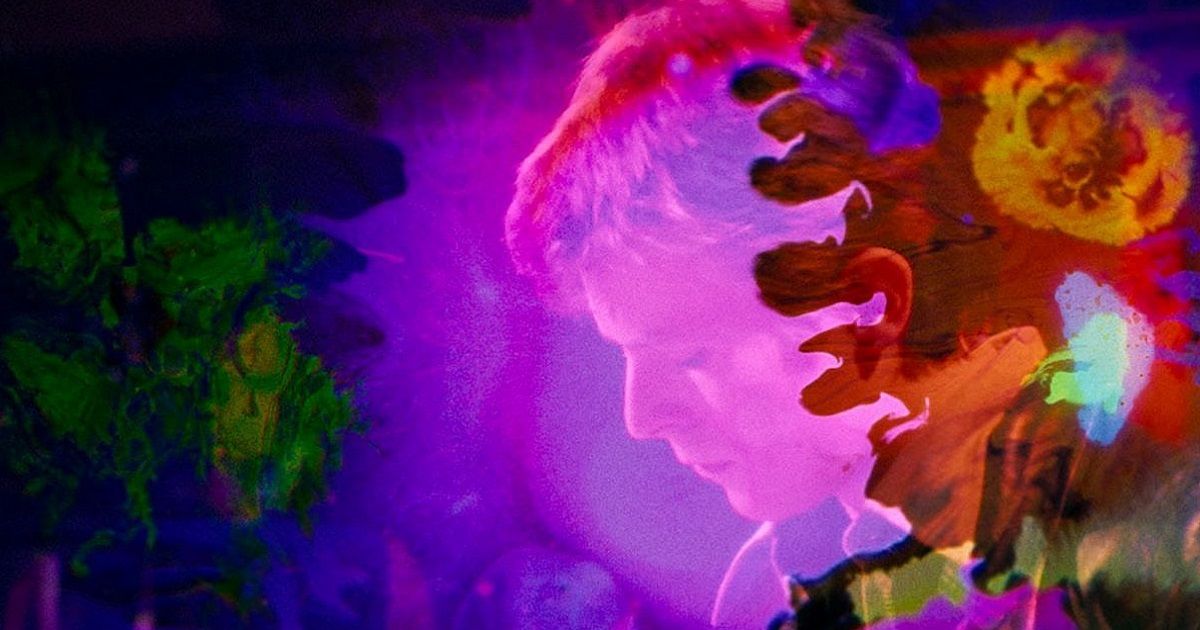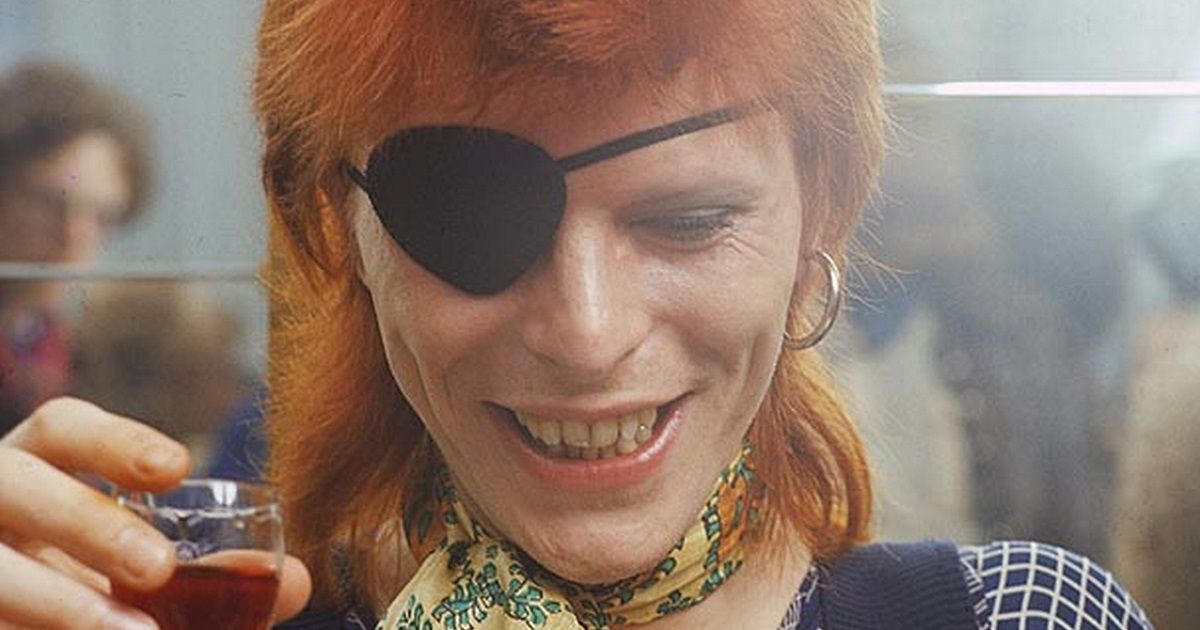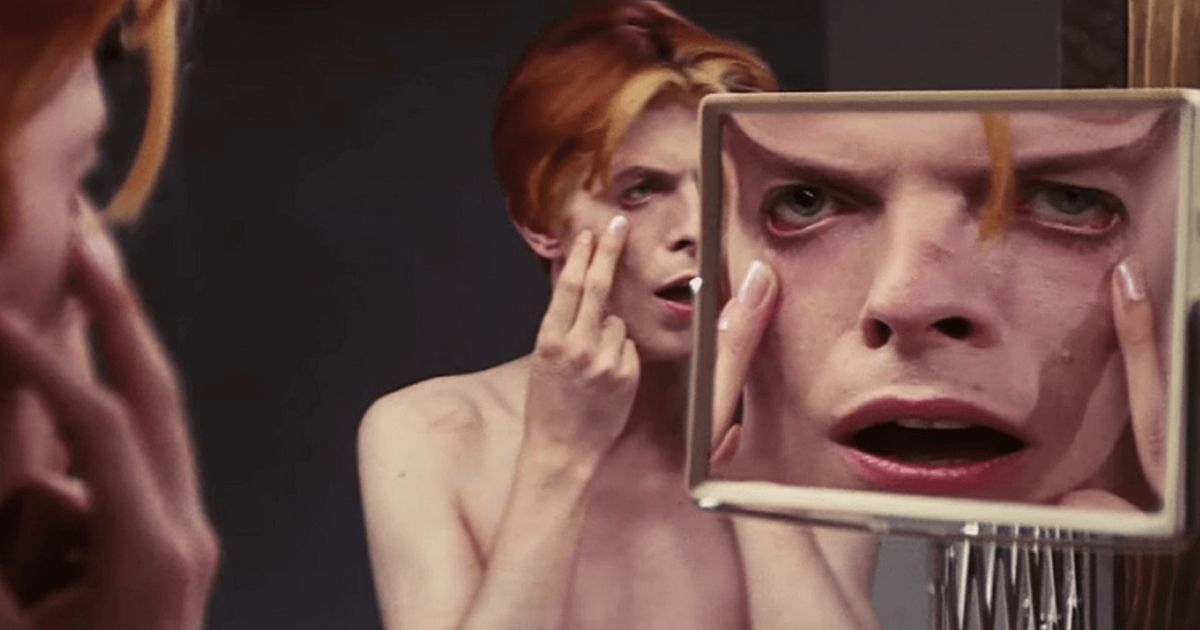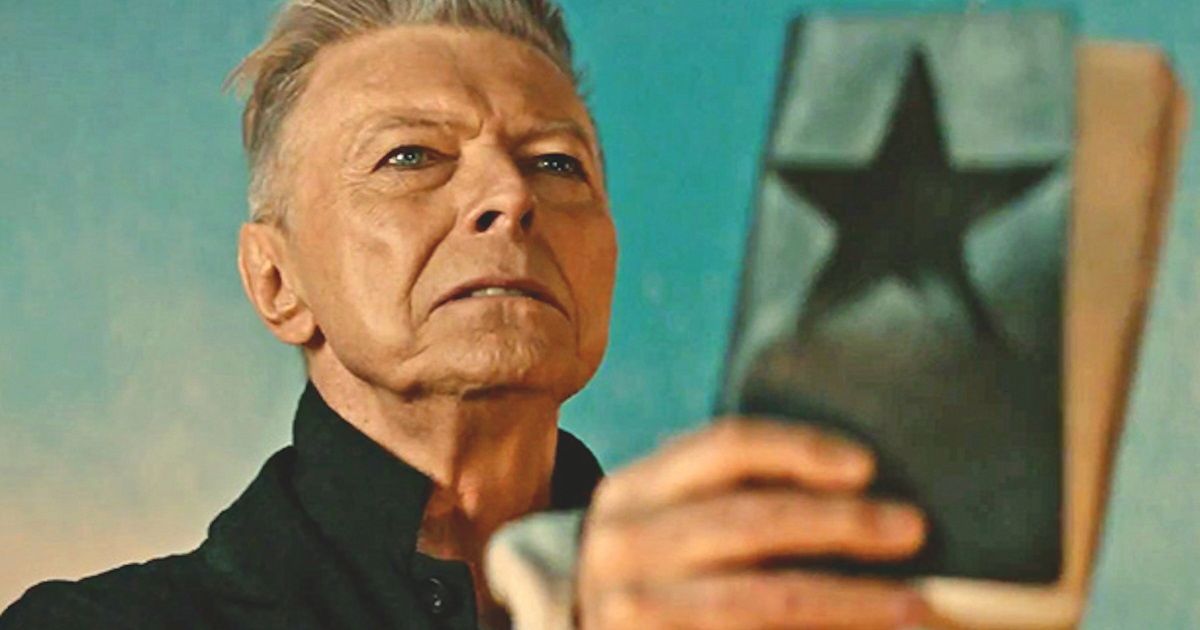Earlier this week, a survey by Sky Arts declared David Bowie the #1 most influential British artist of any medium in the past 50 years. He has had a profound influence on a shockingly diverse range of art, including music genres such as rock, pop, glam rock, grunge, punk rock, K-Pop, ambient music, and even video game soundtracks, to other aspects of culture like gender, sexuality, fashion, music videos, performance art, and more.
In 1972, Bowie became one of the first major public figures in the United States to openly declare that he was gay (clarifying in 1976 that he was, in fact, bisexual). His performances often blurred the lines between masculinity and femininity, and he stirred controversy by wearing dresses in publicity photos and on the British cover of his 1971 album The Man Who Sold the World — half a century before Harry Styles was declared groundbreaking for doing something similar.
Given his monumental legacy and Hollywood’s recent obsession with artist biopics, David Bowie is a natural next target to receive the feature film treatment. Enter Moonage Daydream, the first film ever officially authorized by Bowie’s estate. It is not a traditional biopic but rather a documentary, narrated by Bowie himself. It features never-before-seen archival footage to take audiences on a journey through his awe-inspiring life and career. Helming the project is documentary filmmaker Brett Morgen, whose other music documentary, Kurt Cobain: Montage of Heck, was met with overwhelmingly positive reviews.
Here is what we know about the film so far.
Moonage Daydream: The Story & Reviews
Based on film reviews from Moonage Daydream’s premiere at Cannes Film Festival earlier this year, it’s difficult to summarize the film’s content. Critic Robert Daniels of RogerEbert describes it as “a bombastic, overstimulating, poignant, life-affirming, and risk-taking summation of the artist's ethos and maturation as a person.” Corey Seymour of Vogue calls it “a gloriously immersive kaleidoscopic examination not so much of Bowie’s life here on earth, but of the life he lived inside his head and his heart, which led him to create his art.”
Siddhant Adlakha of IndieWire says that it is “more sensory experience than straightforward recounting” and that the film “is about feeling your way through a chaotic world with Ziggy Stardust as your anchor.” The film appears to examine Bowie’s entire career, which spanned six decades and twenty-six studio albums. Rather than being told in traditional documentary style, however, it will be guided by Bowie’s own narration and perhaps center more on his own conceptual journey.
As might be expected from someone Rolling Stone magazine has called the “greatest rock star ever,” Bowie had a turbulent life. His first career breakthrough was “Space Oddity,” written in 1969 as a pessimistic critique of the United States’ mission to land astronauts on the moon. Released to coincide with the real moon landing, the song became a hit on the radio, and the BBC even played it over their TV coverage of the actual event. Following this, Bowie became a major star in the early 1970s with his fictional rockstar-from-Mars persona Ziggy Stardust. However, the second half of the decade did not treat him as well, as he was devastated by the realization that his manager had been stealing his money and struggled with severe drug addiction. Eventually, Bowie moved to Berlin to get away from it all and rediscover himself, and here he underwent a period of artistic experimentation that exemplifies his entire career. Although the 1970s were the most bombastic years of his life, he consistently released albums for the next four decades.
Other major events in Bowie’s life include the suicide of his mentally ill brother Terry in 1986 (about which he wrote the song “Jump They Say,” and which had a tragic resonance that has inspired many other musicians, including Lana Del Rey with her song “Terrence Loves You”), his marriage to supermodel and fashion designer Iman in 1992, and his eventual death from liver cancer in 2016, two days after the release of his final album Blackstar on his 69th birthday.
Bowie has been called a chameleon for his profoundly wide-ranging talent. With nearly every album, he tackled a new musical genre, many times completely redefining it in one attempt, other times inventing new genres whole-cloth and moving on as if he hadn’t even noticed. This was the heart of Bowie, who struggled with an ever-changing identity that left him horrified at the prospect of being constrained to one genre or artistic medium and even more horrified that he may have inherited his mother’s schizophrenia.
For all these reasons, a traditional biopic that recounts significant events in his life like a rote checklist is simply incapable of capturing who the artist was — and why a hectic, scatterbrained, sensory-experience odyssey, as shown in the film’s trailer, would be the best way to capture David Bowie as the artist/persona and as the human, whose real name was David Jones.
Release Date
The release date for Moonage Daydream is September 16, 2022. It is being distributed by NEON, the acclaimed publishing house whose films have won Cannes Film Festival’s top prize, the Palme d’Or, three times in the past four years. Director Brett Morgen was given access to the Bowie estate’s full archives, which include five million items — from paintings, drawings, and journals, to original music recordings, photographs, and films. Morgen spent four years sifting through the archives for the project. Bowie’s long-time producer Tony Visconti will also produce the music for the film.
Everything Else We Know
Critical reviews for the film are universally positive. It currently holds a 93% on RottenTomatoes ahead of its wide release, with most reviews in the 9 or 10 range. The film’s title comes from the 1971 Bowie song of the same name, which introduces Ziggy Stardust, Bowie’s legendary fictional persona, a bisexual alien rockstar from Mars who comes to Earth to save it from an impending apocalypse.




